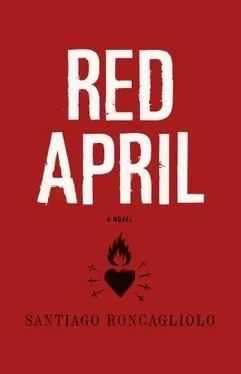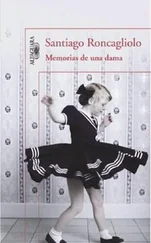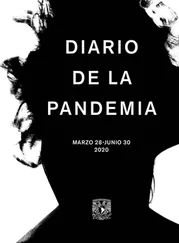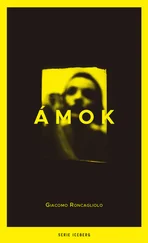“You were … you were going to kill me, weren't you?”
It had never occurred to him that someone might want to kill him. Perhaps Justino had intended to burn him and make his body disappear. He felt the impulse to hit him, to kick him until he bled. He realized he could not. Justino's pathetic suffering had disarmed him. The killer had been consumed in his own attack. Without warning, the wretch lamenting on the ground filled him with fear and pity, just like the mountains, the stream, the clean, dry air.
He grabbed Justino by the back of the collar and lifted him up.
“I am going to take you to the police station. The lieutenant will have to listen to me now.”
But Justino had other plans. As soon as he found himself on his feet, he gave the prosecutor a surprise blow in the stomach with his elbow. Chacaltana had the air knocked out of him, and could not respond. Justino punched him in the face and then kicked him to the ground. In one jump he was on the stone wall and began climbing again. Down below, Associate District Prosecutor Félix Chacaltana Saldívar could do nothing but watch him disappear up the mountain while he tried to warn him that now he was committing the crime of assault and flight.
As soon as he recovered his strength, he returned to the village, thinking that the police still had time to pursue Justino. In the station he found Yupanqui and Gonza playing cards. He went in short of breath, panting. He had a bruise on his face.
“I found a terrorist. I have his name and description. I know where he has gone. We can still catch him.”
Yupanqui threw a card on the table. He did not even turn to look at him.
“Go away, Señor Prosecutor.”
“Listen to me! He is a killer. I can prove it.”
Yupanqui had won the hand. He smiled and picked up the cards from the table, along with three one-sol coins. Gonza made an annoyed face. Yupanqui said:
“If you don't leave, we'll have to throw you out.”
“I want to speak to Lieutenant Aramayo.”
Yupanqui shuffled and began a new deal. Chacaltana insisted:
“I want to speak to …!”
“Don't raise your voice, Señor Prosecutor. The lieutenant isn't here. As far as you're concerned, he won't ever be here again.”
The prosecutor left the police station. He walked to Teodoro's house, looking at the mountains, as if he might discover Justino's hiding place there. He understood that the enemy was like the hills: mute, immobile, mimetic, part of the landscape.
He had to knock a long time on Teodoro's door before they let him in. His things were still there but opened and disturbed. His suit was wrinkled and thrown under his bag. He was surprised to realize he did not care. Teodoro said something to him in Quechua. It did not sound like a lament. It sounded like a reproach. The prosecutor took a couple of coins from his pocket and put them on the ground, in front of the owner of the house, who said nothing else to him. Chacaltana appreciated the progress he had made in his ability to communicate. He lay down right away, in his clothes and shoes. Although it was just getting dark, he felt exhausted.
At night, he again heard the sound of bombs and saw the light of fires coming from the mountains. He did not turn to look at Teodoro's family, and he did not try to leave the house. The first shouted slogans seemed like the echoes of an old movie. Then, everything seemed like the background music to a nightmare.
He thought about his mother.
That night, he did not dream.
The next morning, he got up early to go to his work. At seven, police were still painting the facades of houses. No dogs had been hung that night either.
Voting began at eight, with six members absent from the table and a total ignorance of electoral procedures on the part of the other six. Some voters were recruited for the tables, and they tried to get out of their duties until two soldiers energetically asked them to sit down. No agent or representative of any political party was accredited. The entire police force guaranteed security in the area surrounding the Alberto Fujimori Fujimori School.
At about noon, a civil service helicopter appeared in the sky and landed at one end of the village, making the plants shake in the wind from the rotors. The villagers enjoyed watching it descend. The children went up to play with it. Civilian journalists climbed out with cameras and tape recorders. They were all white, Limenians or gringos. They looked very serious. They greeted the police and Johnatan Cahuide and went into the school to verify the normal process of the elections. They spoke with the two table members who knew Spanish. The table members asked if the president had come in their helicopter.
While the journalists were taking the usual photographs, a reporter went out to the square and lit a cigarette. One of the villagers came up and asked him for one. And then another villager. And another. In five minutes, the reporter was surrounded by villagers who wanted to smoke. Prosecutor Chacaltana considered it appropriate to move them away. He approached and asked them to allow the reporter to do his work in peace. When they were alone, the reporter said:
“It seems that everything's calm, doesn't it?”
“It seems so, yes.”
“There haven't been any problems the last few days? This zone is completely pacified?”
Prosecutor Chacaltana thought that perhaps it was his last opportunity to tell what he knew. The reporter could publish it and let them know about it in Lima, where they surely would become indignant and send a commission or demand an investigation. Perhaps the commander simply was not aware of what was going on, but if the order came from Lima, he would make new inquiries. He wanted to talk about Justino Mayta Carazo and his mysterious appearances and disappearances, about the hammers and sickles burning in the Yawarmayo night, about the shouts from the hills and the shouts of the young men from the village when they were shut inside the military trucks. He opened his mouth and began:
“Well, sometimes …”
“Sometimes you'd think there had never been a war here.”
The voice that interrupted him belonged to Lieutenant Aramayo, who had come up to them wearing an amiable, satisfied smile.
“As you can see,” the police officer continued: “A good climate, a peaceful countryside, people freely exercising their right to vote … What else could you ask for?”
“You're right,” said the journalist. “I ought to move here. Lima can be an unbearable city.”
“I can well imagine,” Aramayo replied with complicity. “Can I steal a cigarette from you?”
Prosecutor Chacaltana did not say anything for the next twenty minutes. Then the journalists returned to their helicopter and left. The winds did not allow planes to fly into Ayacucho after two in the afternoon. They were running out of time. From the ground, the prosecutor could see the cameras taking their final shots from the helicopter windows.
At four o'clock, when it was time for the voting tables to close, polls had called the opposition candidate the victor. Some gave him more than half the votes. At the National Office and among the military a strange uneasiness was spreading. Until five o'clock, Cahuide kept receiving phone calls and preparing the packages for the military truck. Officers ran back and forth, indifferent to the prosecutor, who had been transformed into one more object that had to be taken away, one that made no noise.
Four hours later, the truck was approaching Ayacucho with the radio playing. Filtering through the salsa and vallenatos that the soldiers had tuned in to for the trip was the announcement of the first official returns. All the polls had been wrong. The real winner was the president. It was about to be decided if there would be a recount. The soldiers driving the truck tuned in to music. Politics bored them.
Читать дальше












